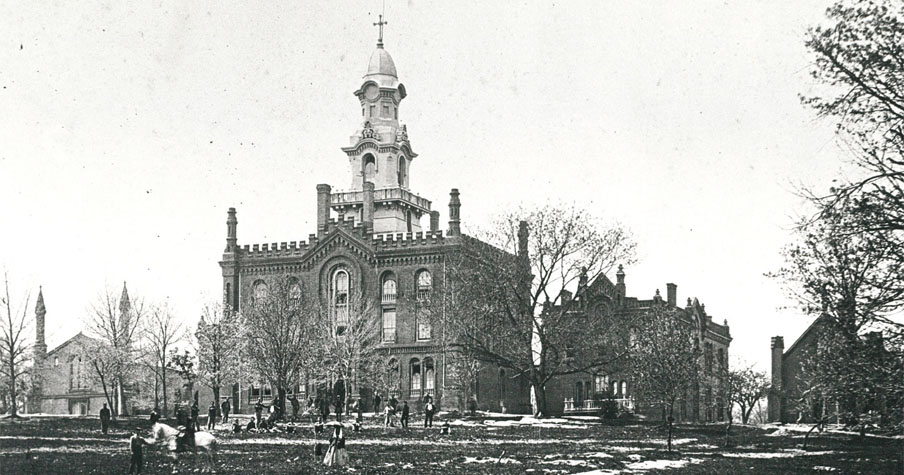
Library of Congress
Frances Johnson Terrell and her husband, Calvin, have spent nearly their entire lives within steps of Virginia Theological Seminary (VTS). In fact, the campus, west of downtown Alexandria, has been a constant presence in their families since the mid-19th century – and not always in benign ways.
Mrs. Terrell, 79, is the granddaughter of the late Frederick Douglass Johnson, an African American who worked at the seminary during the Jim Crow era. Her husband traces ancestors to the early and mid-19th century, including two farmhands, a laborer, and a cook – all men enslaved in the household of Cassius Lee, a Virginia Theological Seminary trustee, secretary, and treasurer.
In February, the Terrells and 30 other descendants of enslaved people and those legally segregated under Jim Crow laws at VTS received the first annual reparation payments authorized by the seminary’s Board of Trustees.
The payments are funded by the earnings from a $1.7 million endowment established in 2019 for the purpose of compensating the families, VTS officials said. Reparation payments will be made annually, in perpetuity, to the closest living descendants. The New York Times reported this summer that each payment was $2,100.
The Italianate Aspinwall Hall, ca. 1859, still stands at Virginia Theological Seminary; in the American Civil War, it was occupied as a Union hospital.
“I thought it was wonderful,” Mrs. Terrell said. “It wouldn’t have mattered if it was just $5; that they were willing to do what we had talked about for years and years – we were delighted.” The Terrells placed half of the payment in savings and gave the other half to their grandchildren.
VTS is the first American institution of higher education known to have made reparation payments. Among seminaries, Princeton Theological Seminary in 2019 announced a $27.6 million initiative to “repent for its ties to slavery,” and subsequently announced a multi-year plan to implement a set of initiatives to respond to this history.
VTS Dean and President the Very Rev. Ian S. Markham, Ph.D., conceived the program and established the endowment fund in 2019 with discretionary funds. The initiative is part of the seminary’s efforts to confront its history.
“There was a very broad consensus on the board that our history was what it was, and we ought not pretend otherwise,” said Dr. David H. Charlton, chair of the VTS Board of Trustees, who said no one dissented to creating the fund.
VTS is engaged in comprehensive historical and archival research to continue to identify shareholders, as the descendants of the enslaved and Jim Crow workers are called, and to trace the seminary’s complex racial history.